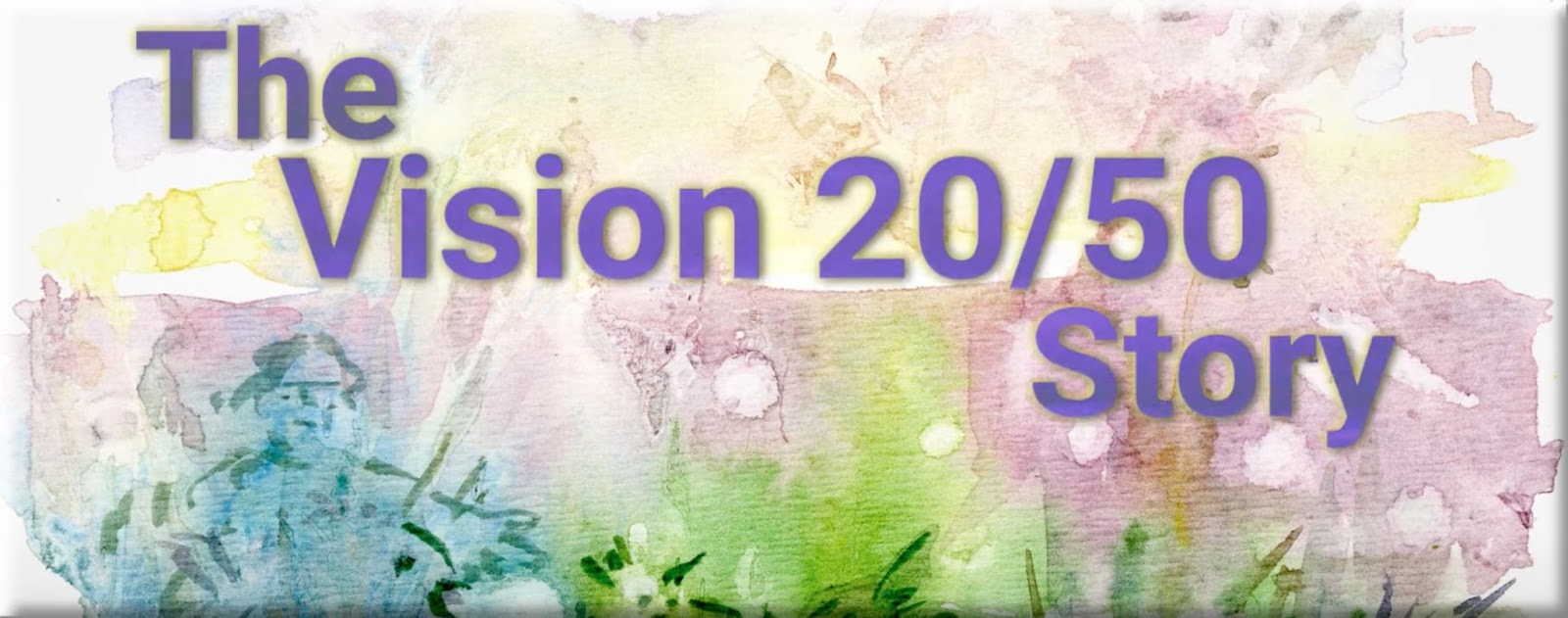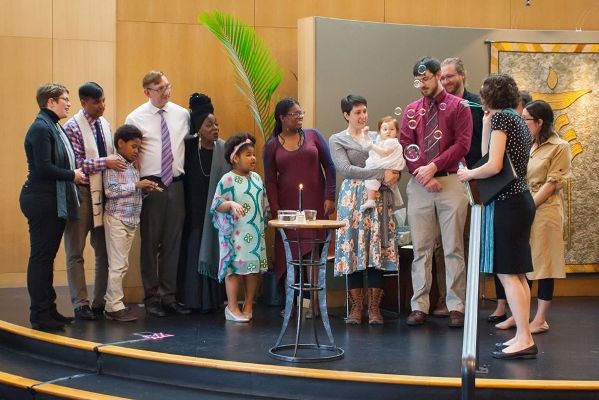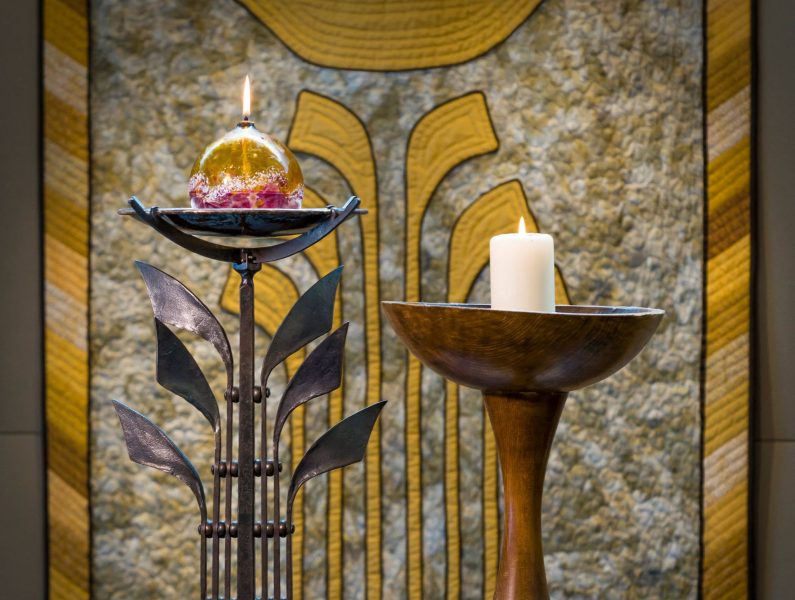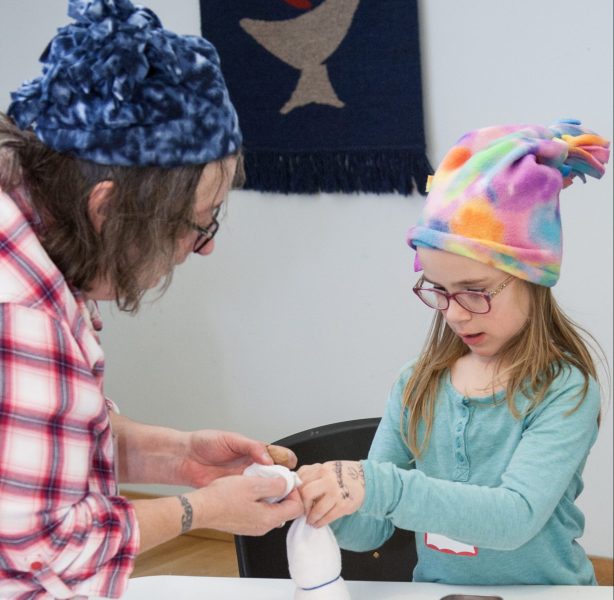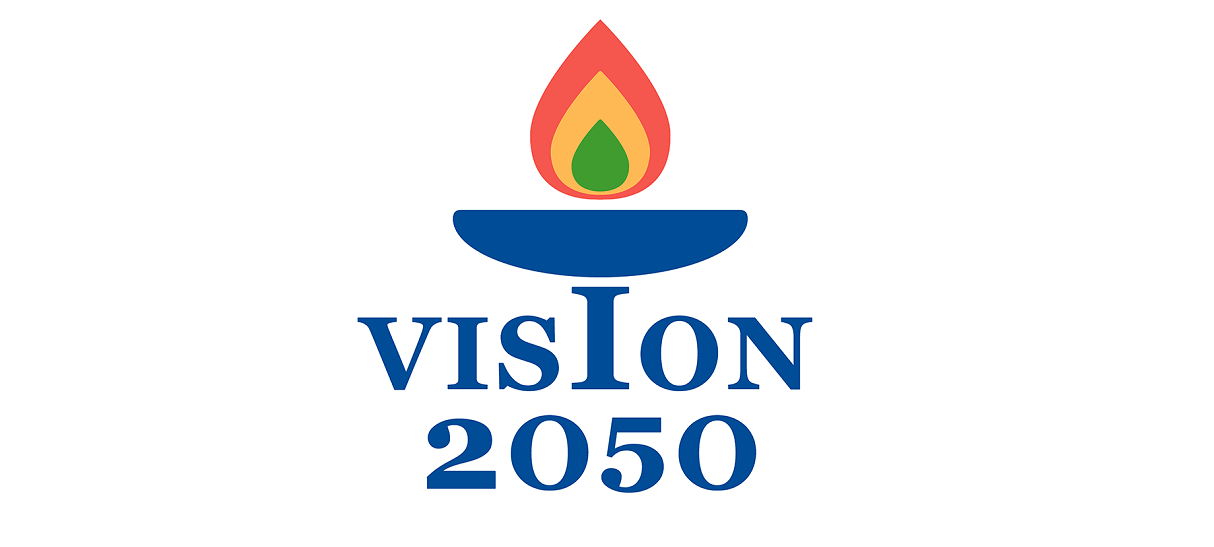Our Vision Process
Our Vision 2050 journey began in 2019 with a year-long community dialogue about who we want to be as a congregation, and what kind of world we want to leave future generations. The result was a boldly-imagined bright and just future as laid out in this Congregational Vision, designed to serve as our North Star for the work we will do together over the next 30 years and beyond.
Our three Vision Priority Areas (described below) are directly linked to our congregation’s long history of advocating for living in harmony with our environment, working for civil and human rights and standing up for the pressing issues of the day: immigration and prison reform, LGBTQIA rights, anti-racism, lifting our community from poverty, and homelessness and , reproductive rights., and protecting our precious earth environmental protection.
As far back as 1865, our members have worked within our congregation and with community partners to live out the audacious notion that we can make a difference in the world. We continue that journey.
Our Vision Priorities
The Vision 2050 Congregational Vision document lifts up three intersecting issues that are central to bringing our vision into reality. A focus on climate issues and the environment builds on UUAA’s existing strengths and passions. As a faith based community, we are uniquely positioned to take on this role as a religious voice in a complex issue with competing values. We are also called to put deeper and more impactful work toward racial justice, addressing racism and the other “isms” that divide our communities and our country. As we strive to create a more sustainable Earth and society, we also need to work toward a more sustainable UUAA community with radical welcome and spiritual support for all races, socioeconomic levels, disabilities, gender identities, ages and other types of identities.
Climate Action/Climate Justice
The climate crisis is an existential threat to the web of life — life that people of faith and conscience are called to protect. UUAA discussions during our 2050 visioning process made it clear that the congregation wants our community to take bold actions that address sustainability, resilience, and climate justice issues. As a faith community, we would hope to serve as an example by living in harmonious relationship with the natural world, and by working in collaboration with community groups who are confronting injustices caused by climate change.
In March, 2021, UUAA enrolled in the Unitarian Universalist Association’s Green Sanctuary 2030 Program. This program provides us with a structure and additional resources that accelerate our action planning on climate issues. Our work includes:
- Taking action to make our UUAA building and land carbon-neutral.
- Inspiring each other to have greater awareness about sustainability issues surrounding food production, energy use, soil and water, and more.
- Offering educational and spiritual resources to help adults and children in our community learn resilience and find their own ways to act on climate issues…with hope and shared conviction.
- Working in collaboration with outside groups who make an impact on climate justice issues that affect vulnerable members of our Southeast Michigan community.
- Adding our voice to local, state, and national dialog on climate related policies.
Every aspect of congregational life is part of this effort, keeping aware of how we can all work on “zero waste” and a smaller carbon footprint. UUAA groups leading this effort include the Climate Action / Climate Justice Team, the Food Justice Team, UUAA youth in our Spiritual Growth and Development program, our Land Management Team and others.
Contact us for more information or to get involved: climate@uuaa.org.
Radical Welcome
As a radically welcoming congregation, we actively invite the voices, presence, and power of many people and groups in order to help shape the congregation’s common life and mission. We seek especially to include the people and groups systematically pushed to the margins, cast out, silenced, and closeted.
As congregants, Radical Welcome asks each of us to:
- bring our culture, our voice, our whole self to engage in truly mutual relationships
- be present, to listen, to be curious, to be compassionate and open-hearted
- be willing to be changed by those who come to our Congregation
- celebrate our common humanity
As elected leaders, lay leaders, and staff, Radical Welcome asks us to:
- seek to ensure that the presence, gifts, and perspectives of all people will be visible and valued
- engage with congregants and groups in the UUAA community when they feel their voices aren’t being heard about systemic issues
- develop new systems and modify existing systems, programs, and communications that invite and welcome all people – including those from groups who have been historically marginalized.
As a Radically Welcoming congregation, we aspire to become known and recognized as a transformed and transforming congregation with open doors and open hearts, where different people and groups share power, and shape identity, mission, leadership, worship, and ministries.
For a better understanding, we encourage you to check out this chart from Stephanie Spellers.
Contact us for more information or to get involved: radicalwelcome@uuaa.org.
Anti-Racism/Anti-Oppression
The existence of racist, anti-Semitic, Islamophobic, and anti-immigrant incidents – in addition to crimes against transgender people and other forms of oppression – causes great harm in our country and local communities. We recognize the importance of examining these issues both within and beyond our congregation. This vision area seeks to define, refine, and implement a structure that can support a range of congregational actions on local, regional, and national levels. Some key questions we are considering include:
- How can we, as members of the UUAA community, deepen our support and relationship with congregants and community members with marginalized identities – especially with BIPOC (Black, Indigenous, and People of Color) and queer and trans people?
- How do we create a space where no one feels “other” and all serve as teachers and learners?
- What relationships can we build with community partners who are working to end racism and oppression?
Contact us for more information or to get involved: arao@uuaa.org.
